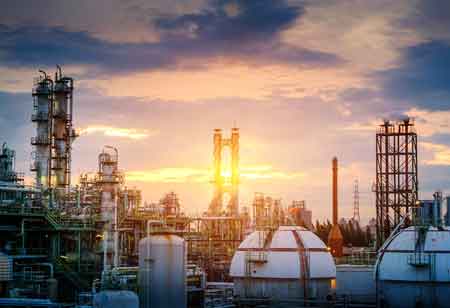Fremont, CA: The chemical manufacturing sector is an expansive industry responsible for producing various chemicals utilized in many sectors, including pharmaceuticals, food additives, construction materials, and electronics.
Examining the supply chain of chemical manufacturing is essential for comprehending the sourcing, conversion, and distribution of raw materials to consumers. This evaluation enables the identification of possible bottlenecks, inefficiencies, and hazards within the supply chain, as well as proposing strategies for enhancement.
Supply Chain in Chemical Manufacturing
Managing the supply chain in chemical manufacturing encompasses the coordination and optimization of material, information, and resource flow throughout the production and distribution of chemical goods. This process involves aligning the efforts of various parties, such as suppliers, producers, distributors, and consumers, to guarantee the timely, effective, and economical production and delivery of products.
Successful supply chain management in chemical manufacturing necessitates a profound comprehension of the intricate web of suppliers, manufacturers, and distributors engaged in the manufacturing and distributing of chemical goods. This involves overseeing supplier relationships to guarantee top-notch raw materials promptly, enhancing production procedures to boost effectiveness and minimize waste, and aligning distribution channels to guarantee timely and accurate delivery of products to customers.
Critical Evaluation of the Supply Chain of Chemical Manufacturing
Understanding the supply chain of chemical manufacturing is essential to pinpoint any bottlenecks, inefficiencies, and risks in the process and recommend enhancement strategies. Critical components of this supply chain include sourcing raw materials, transportation, manufacturing, distribution, and waste disposal.
Some of the critical components of the supply chain of chemical manufacturing may include:
Raw Material Sourcing:
Sourcing raw materials plays a critical role in the chemical manufacturing supply chain. The quality and accessibility of these materials greatly influence production processes, product costs, and final product quality. Moreover, raw material sourcing can also impact the environment and society, especially concerning the extraction of natural resources.
The sourcing of raw materials for chemical manufacturing encompasses diverse natural resources, namely oil, natural gas, coal, minerals, and biomass. The accessibility and pricing of these resources can be subject to various influences, including geopolitical tensions, weather phenomena, and disruptions in the supply chain.
To illustrate, natural calamities like hurricanes and earthquakes have the potential to impede the transportation of raw materials. Similarly, geopolitical tensions can result in embargoes and trade restrictions, further impacting the availability and procurement of these resources.
In recent times, the chemical manufacturing industry has placed increasing emphasis on the sustainable procurement of raw materials. Raw material sourcing plays a vital role in the chemical manufacturing supply chain, impacting the final products' cost, quality, and sustainability. The industry emphasizes sustainable sourcing and exploring alternative feedstocks to minimize environmental and social footprint.
Transportation:
Transportation plays a significant role in the supply chain of chemical manufacturing. It encompasses the transfer of raw materials, finished products, and waste materials across various supply chain stages, such as sourcing, manufacturing, distribution, and waste disposal.
Chemical transportation is a multifaceted process that demands meticulous coordination to guarantee the availability of appropriate materials at the precise time and in the correct quantities.
Chemical transportation can involve various modes, including pipelines, trucks, trains, and ships. Each mode has its own benefits and drawbacks, and the selection of a specific mode hinges upon factors such as the distance to be travelled, the nature of the chemical being transported, and the cost and accessibility of different transportation alternatives.
Efficient transportation management is essential for successfully operating chemical manufacturing supply chains. It is crucial to ensure the secure, timely, and economical transfer of materials across various supply chain stages.
Manufacturing:
Chemical production plays a pivotal role in the supply chain of chemical manufacturing. This process entails converting raw materials into final products using a combination of chemical reactions and physical procedures. The manufacturing process is intricate and demands meticulous supervision and regulation to guarantee attaining the intended chemical characteristics and standards.
Chemical production is typically segmented into reaction, purification, and formulation. During the reaction phase, raw materials are mixed and undergo chemical transformations to yield intermediate chemicals.The chemical manufacturing industry utilizes a complex, advanced manufacturing process incorporating specialized equipment and technologies.These are some of the critical aspects of the supply chain of chemical manufacturing. Distribution and waste disposal also contribute to these elements.

